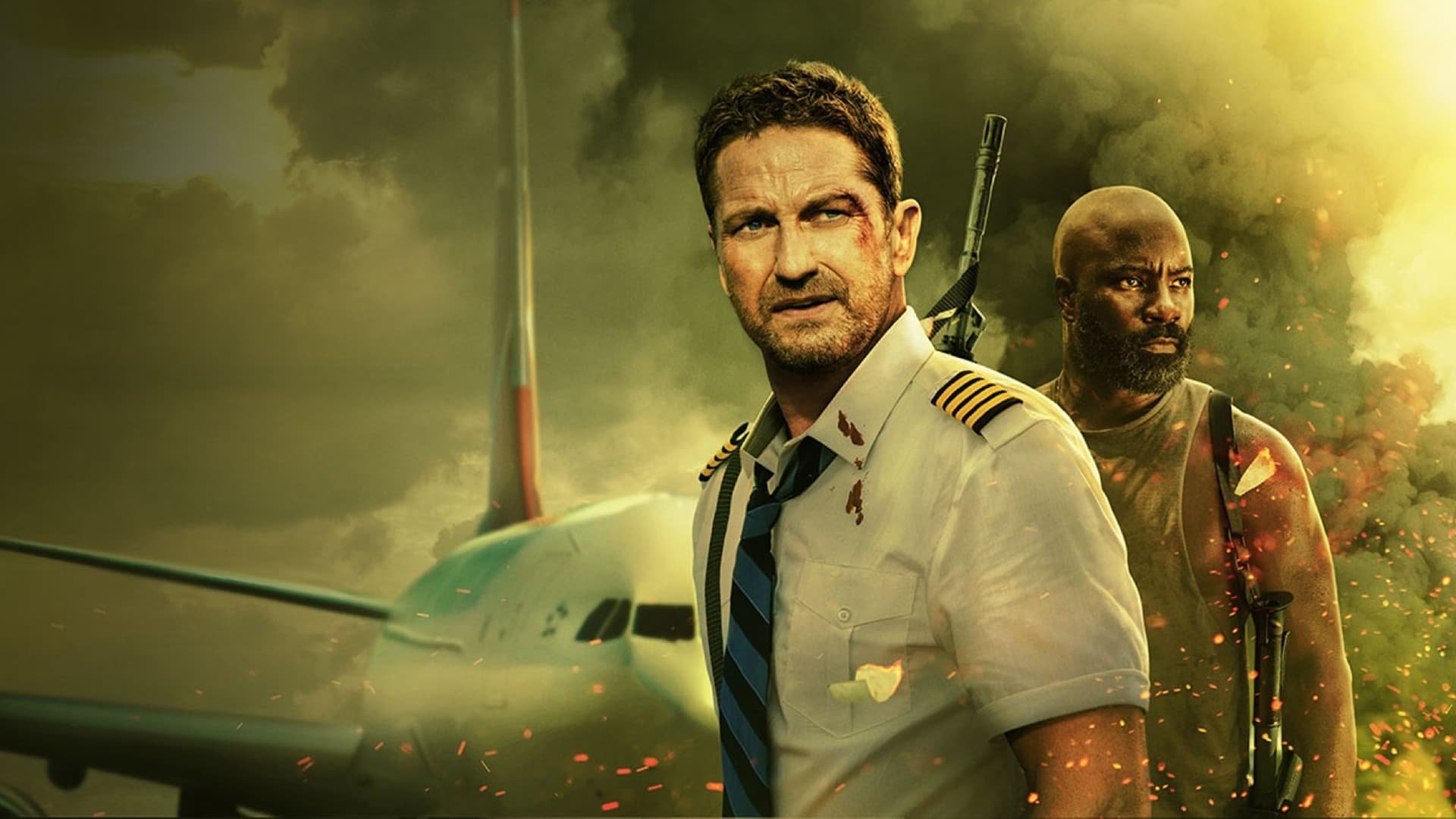Plane
LionsgateArguably the earliest contender for the worst title of the year, Plane made audiences worldwide laugh unintentionally every time the trailer would play in front of a film when its title was revealed. As lame as Plane looked, however, genre filmmaker Jean-François Richet actually crafts a lean, mean, and perfectly satisfying actioner that feels like it’s paying tribute to the greatest 80s/B-movie studio of all time: The Cannon Group. Replace Gerard Butler with Chuck Norris and Mike Colter with Louis Gossett Jr., and it’s their latest collaboration since J. Lee Thompson’s Firewalker.
As expected, with movies of their ilk, the characters are grossly underdeveloped. Butler plays Brodie Torrance, the most clichéd name of any airline pilot possible. He’s the best pilot there is because he cracks jokes as the flight is ready to take off, but it takes a sudden tragic turn as a lightning bolt hits the airplane and causes Brodie to crash land on a stranded island…or so he thought. The island isn’t stranded at all. It’s near the Philippines and has been taken over by a disposable terrorist group that’s as stereotypical as the villains in Sylvester Stallone’s Rambo. Along with convict Louis Gaspare (Mike Colter), Brodie will attempt to radio the aircraft company, where a man named Scarsdale (Tony Goldwyn) enlists a military team to extract the passengers from the island.
Every plot thread can be seen a mile away, the characters are either terribly clichéd or perpetuate horrible stereotypes, the two protagonists represent two alpha male fantasies, while they also get rescued by a group of amazingly ripped army dudes with massive guns, the music is highly reminiscent of Jimmy Page’s score in Death Wish 3 – it’s a Cannon Group film. It’s what foreigners think an American film should be — big dudes who can barely act, lots of guns, explosions, and carnage, all led by a washed-up actor who had a once-great career in films like 300, RocknRolla, and Law Abiding Citizen, but took a massive nosedive when he starred in Olympus Has Fallen.
Butler hasn’t starred in many great films since then and will likely become the next Liam Neeson, where he’ll be typecasted in the same breed of milquetoast action movies for an easy paycheck. But Plane isn’t milquetoast. Apart from its disposable plot, its action sequences are surprisingly refined and well-executed. The first fight scene is an unbroken shot from the point of view of Butler’s Torrance struggling to take a breath and beat the henchman. It’s surprisingly raw and cathartic and signals Richet's approach throughout the film.
Then audiences are treated to the arrival of the rescue team, and that’s where Richet amps up the tension to eleven. Everything is seen coming a mile away, but it also doesn’t matter. The action is pure catharsis. One army soldier, his name is completely forgettable, takes out an expensive-looking briefcase with a huge gun in it. Once that gun shows up, that’s when Plane goes hard and never stops until the end. With the aid of cinematographer Brendan Galvin and composers Marco Beltrami and Marcus Trumpp, Richet brings great energy to the scene and crafts the best B-movie shootout possible, that doesn’t feel too cheap, but isn’t high-end either. It’s the perfect moment for audience members to slap their seats and marvel at the sheer machismo Richet deploys, with muscular dudes glistening in sweat taking down bad guys like it’s nobody’s business. That’s pure cinema, and something that action movies have sorely lacked these days.
Why not enjoy 107 minutes of pure adrenaline, with well-executed action setpieces making any susceptible audience member cheer at the minute these disposable villains get killed by the biggest gun in the history of contemporary movie guns? These are the pleasures that Plane offers. Don’t wait until the word of mouth gets too strong, go see Plane big n’ loud, as it was meant to be experienced.


